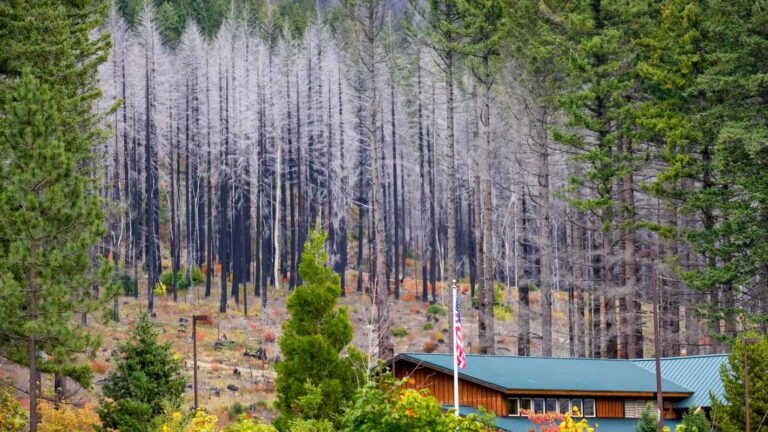As wildfires intensify across the Western United States, homeowners are facing an additional threat: being dropped by their insurance providers. In Oregon, two state lawmakers – a Democrat and a Republican – are calling on major insurance companies to pause their use of internal wildfire risk maps to deny or cancel policies.
Senators Anthony Broadman and Mike McLane sent a joint letter to insurers like State Farm, Allstate, and Liberty Mutual, requesting they stop using private wildfire risk maps to drop homeowners’ policies until January 2026. The lawmakers argue that these decisions are often based on data from companies like Verisk, which uses drones to assess risk from above rather than on-the-ground assessments. “Constituents contact us with increasing frequency to say that they have been ‘dropped’ or not renewed by one of you,” the senators wrote, according to Oregon Public Broadcasting.

The practice has raised concerns among homeowners and lawmakers, who say it can lead to coverage being denied without clear or individualized data. In response, some states are considering restrictions on insurers’ use of drone footage to make policy decisions. Delaware has recently established new regulations regarding this practice.
In Oregon, a committee of lawmakers has endorsed Senate Bill 83, which would repeal the state’s official wildfire hazard map. Critics argue that the map fails to accurately reflect individual risk and could even devalue property. The bill has passed the Senate and now heads to the House.
Climate advocates are calling for stronger oversight of the insurance industry and more transparency around risk data. As global temperatures rise, fueling more frequent and destructive wildfires, insurance companies are cutting coverage in high-risk areas. However, in Oregon, insurers have still managed to turn a profit, paying out just 52 cents in claims for every dollar collected in premiums in 2023.
The issue highlights a broader pattern of corporate behavior that ignores the role of burning dirty energy sources in driving extreme weather while shifting the consequences onto consumers. Lawmakers and advocates are pushing for reforms, including legislation like the Wildfire Defense Act, to address these issues and ensure access to affordable insurance for rural and fire-prone communities.


